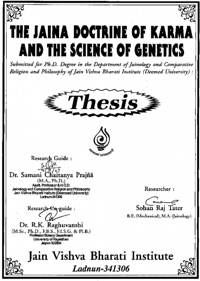- Idea of karma in Ramāyaṇa
Reference to reincarnation in Ramāyaṇa represent the general nature of karma theory. The theory of reincarnation is discussed in detail in fourth chapter in Vālmīki's Ramāyaṇa. With reference to reincarnation, compulsorily facing the consequences of one's karma is undisputed acknowledged there.[30]
- Idea of karma in Mahābhārata
The essence of the Philosophy of karma in Mahābhārata is that the whole life is full of karmas. It is clearly acknowledged there that doing evil or righteous deeds, man essentially faces their evil or auspicious consequences in this world.[31] Pleasing fruits of good karmas and painful fruits of evil actions is generally doubtlessly established. All kinds of creatures, wise, foolish, valiant and coward have to undergo the evil or auspicious results of the un-availed karmas of their previous birth in the present life. One gets the results of only actions done by oneself at various stages of life, no one faces the results of the karmas not performed by him.[32] Mahābhārata supports this view at several places. It is stated there that one must behave the same way towards others as one desires for oneself.[33]
Under all types of circumstances - relinquishment - charity, joy-pain, dear-hated etc. one must treat others as his own soul.[34] Only he, who treats others as himself, enjoys the pleasures of paradise.[35] The treatment one finds pleasing to oneself must be given to others. O! Yudhiṣtara! this is the distinction between righteousness and unrighteousness.[36] The seer pronounces in Ṛṣibhāṣita Sūtra virtues and sins committed in the previous lives are the root causes of progeny.[37]
The Jaina Doctrine of Karma And The Science Of Genetics: ▪ Karma Defined in Epics
Author:
 Prof. Dr. Sohan Raj Tater
Prof. Dr. Sohan Raj Tater
 Prof. Dr. Sohan Raj Tater
Prof. Dr. Sohan Raj Tater
Published: 25.11.2008
Updated: 02.07.2015
Updated: 02.07.2015
Sources
 Doctoral Thesis, JVBU
Doctoral Thesis, JVBUPage glossary
Some texts contain footnotes and glossary entries. To distinguish between them, the links have different colors.
Page statistics
This page has been viewed 1566 times.